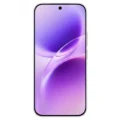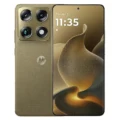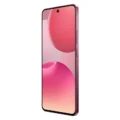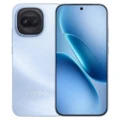Vivo X300 Pro (16GB+512GB)
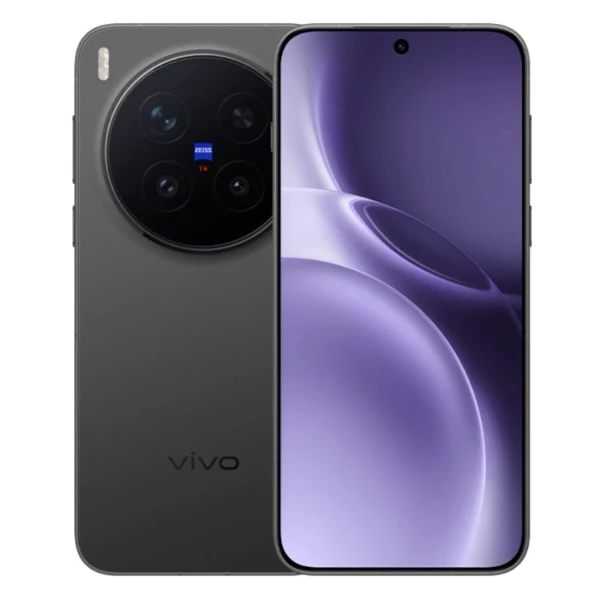

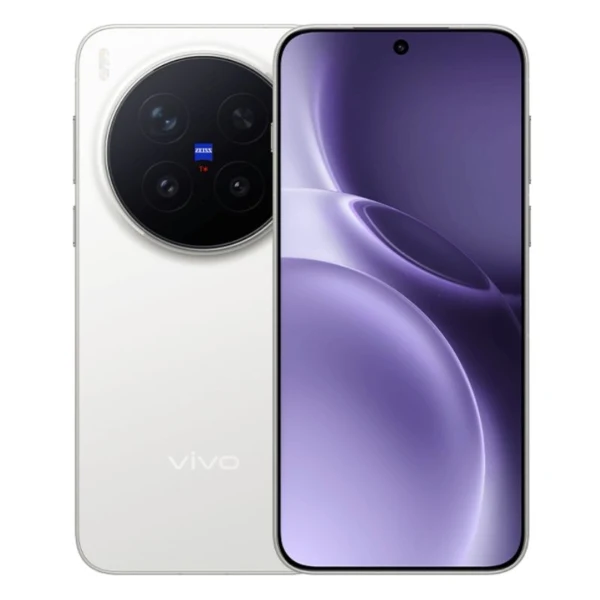
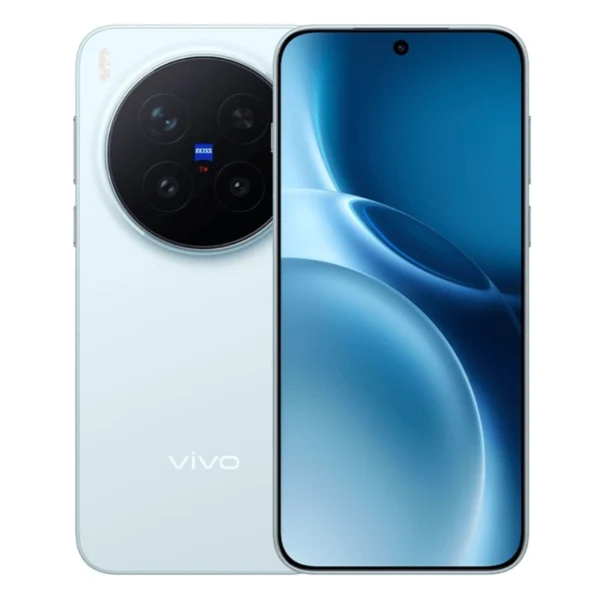
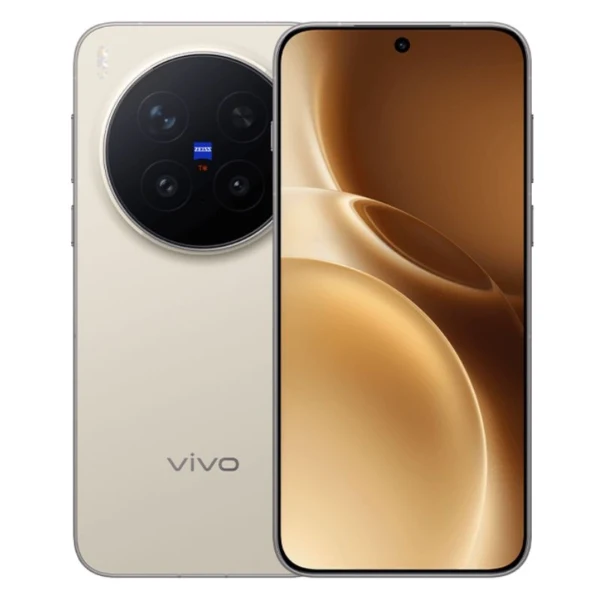
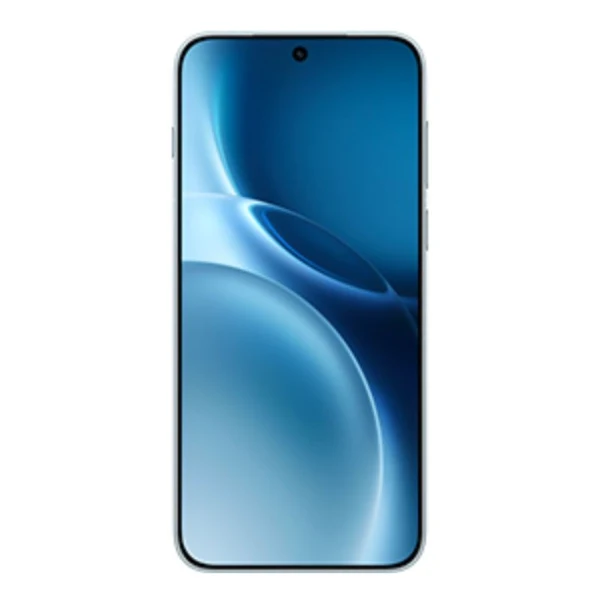
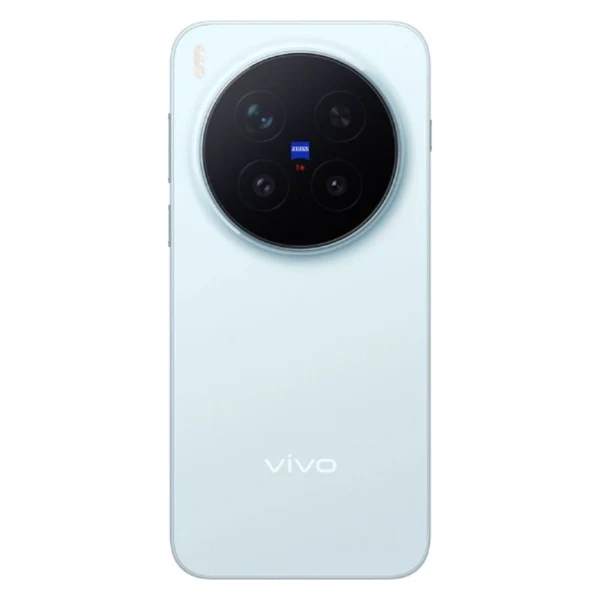
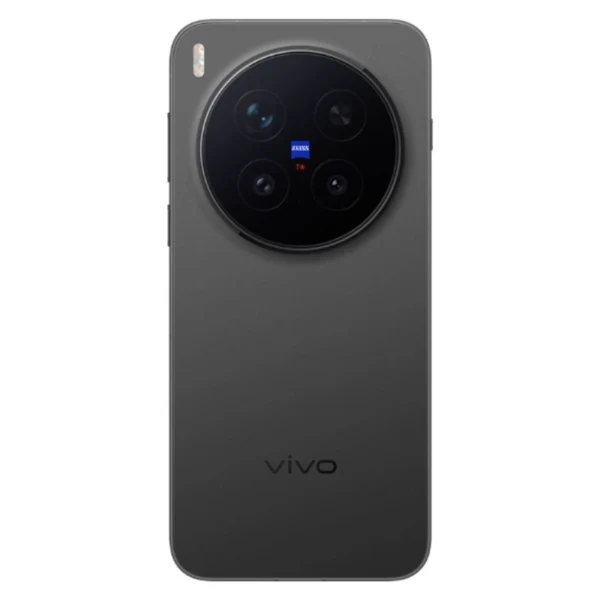
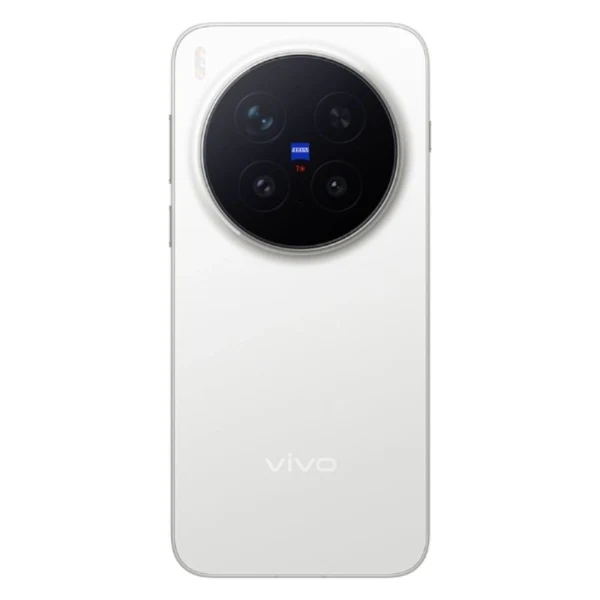
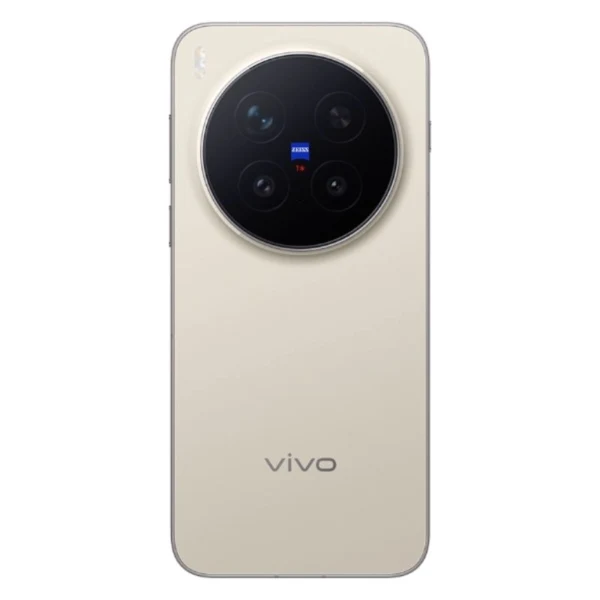
Vivo X300 Pro Available 2 Variant:
Full Specifications
Price in BD
| Official | 16GB+256GB - 1,49,999 Taka |
| Unofficial | 16GB+256GB - 1,36,000 Taka |
General Info
| Announced | 13 October, 2025 |
| Status | Available |
| Released | 17 October, 2025 |
| Brand | vivo |
| Model | X300 Pro |
| Made By | China |
Network
| Technology | GSM / HSPA / LTE / 5G |
| 2G bands | GSM 850 / 900 / 1800 / 1900 |
| 3G bands |
HSDPA 800 / 850 / 900 / 1700(AWS) / 1900 / 2100 - China HSDPA 850 / 900 / 1700(AWS) / 1900 / 2100 - International |
| 4G bands | 1, 2, 3, 4, 5, 7, 8, 18, 19, 20, 25, 26, 28, 34, 38, 39, 40, 41, 42, 43, 48, 66 |
| 5G bands | 1, 2, 3, 5, 7, 8, 18, 20, 25, 26, 28, 34, 38, 39, 40, 41, 48, 66, 77, 78, 79 SA/NSA/Sub6 |
| VoLTE | |
| Speed | HSPA, LTE, 5G |
Body
| Dimensions | 161.98 x 75.48 mm (6.35 x 2.97 in) |
| Thickness | 7.99 mm |
| Weight | 226 g (7.97 oz) |
| SIM Slot | Hybrid SIM |
| SIM SIM (Subscriber Identity Module) is a small card that contains mobile network subscriber's account information. This allows the phone using the card to attach to a mobile network. The SIM card is most commonly associated with GSM and UMTS mobile networks. Moving a SIM card from one phone to another allows a subscriber to switch mobile phones without having to contact their mobile network carrier. SIM cards can also be used by a phone to store limited amounts of data, such as phone numbers and text messages. |
- Nano-SIM + Nano-SIM + eSIM (max 2 at a time) - International - Nano-SIM + Nano-SIM - China |
| Build | Glass front, aluminum alloy frame, glass back |
| Colors | Wilderness Brown, Free Blue, Simple White, Pure black |
| IP Rating | IP68/IP69 dust tight and water resistant (high pressure water jets; immersible up to 1.5m for 30 min) |
| Models | V2502A, V2502DA |
Display
| Display Type Display Technology => A number of display technologies and types used in mobile phones => TFT (Thin Film Transistor), IPS (In-Place Switching), OLED (Organic Light Emitting Diode), AMOLED (Active-Matrix Organic Light-Emitting Diode), Super AMOLED (an even advanced version of AMOLED), Resistive Touchscreen (Resistive touchscreens contain two layer of conductive material with a very small gap between them which acts as a resistance), Capacitive Touchsceen (Capacitive touchscreen technology consists of a layer of glass coated with a transparent conductor) | LTPO AMOLED |
| Size | 6.78 inches, 111.5 cm2 |
| Screen to Body | ~91.6% |
| Features | 1B colors, 2160Hz PWM, HDR10+, HDR Vivid, Dolby Vision |
| Brightness | 4500 nits (peak) |
| Refresh Rate | 120Hz |
| Resolution | 1260 x 2800 pixels |
| Aspect Ratio | 20:9 |
| Pixel Density Pixel Density (PPI) is refers to the concentration of pixels on a particular display, measured in pixels per inch (ppi). Pixel density is calculated by dividing the diagonal pixel resolution of a display by its diagonal size, higher pixel density better display quality. | ~452 ppi |
| Protection | Scratch/drop-resistant glass |
| Bezel-less | Yes with punch-hole display |
| Touch Screen | Capacitive Touchscreen, Multi-touch |
| Others | Ultra HDR image support |
Performance
| Chipset Chipset is a group of integrated circuits designed to perform one or a more dedicated functions, often with real time computing constraints, Popular smartphones are equipped with more advanced embedded chipsets that can do many different tasks depending on their programming. | Mediatek Dimensity 9500 (3 nm) |
| Fabrication | 3 nm |
| CPU CPU (Central Processing Unit) mostly known as processors, CPU processes instructions in order to carry out certain functions that make your device operate properly. Processors are often described as the brain of computers, smartphones and tablets, Smartphones and tablets rely on processors to carry out their every task, Processors are an incredibly important factor in selecting any type of computing device, including your smartphone. | Octa-core (1x4.21 GHz C1-Ultra & 3x3.5 GHz C1-Premium & 4x2.7 GHz C1-Pro) |
| CPU Cores | 8 cores |
| GPU GPU (Graphics Processing Unit) is a single-chip processor designed to rapidly manipulate and alter memory to accelerate the creation of images in a frame buffer intended for output to a display, This includes things such as lighting effects, object transformations, and 3D motion. | Arm G1-Ultra |
| Architecture | 64-bit |
| OS | Android 15, up to 4 major Android upgrades |
| UI | Funtouch 16 (International), OriginOS 6 (China) |
Memory
| RAM RAM (Random Access Memory) is a type of computer memory that can be accessed randomly, any byte of memory can be accessed without touching the preceding bytes that allows information to be stored and accessed quickly from random locations. RAM is the most common type of memory found in computer systems, smartphones, tablets and other electronic devices. | 16 GB |
| RAM Type | LPDDR5X |
| ROM | 512 GB |
| Card Slot Memory Card Slot is a special slot for inserting a memory card. Memory cards allow you to expand the phone's built-in memory, A memory card (sometimes called a flash memory card or a storage card) is a small storage medium used to store data such as text, pictures, audio, and video, for use on small, portable or remote computing devices such as mobile phones, mp3 players, digital cameras. | No |
| UFS | 4.1 |
Main Camera
| Triple |
50 MP, f/1.6, 24mm (wide), 1/1.28", 1.22µm, PDAF, OIS 200 MP, f/2.7, 85mm (periscope telephoto), 1/1.4", 0.56µm, multi-directional PDAF, OIS, macro 2.7:1 50 MP, f/2.0, 15mm, 119˚ (ultrawide), 1/2.76", 0.64µm, AF |
| Features | Laser AF, color spectrum sensor, Zeiss optics, Zeiss T* lens coating, panorama, HDR, 3D LUT import |
| Flash Flash Light => There is commonly two types of flash lights are used in camera mobile phones, LED Flash (LED flash offers lower power consumption with drive circuitry that takes up very little room, LEDs can be strobed faster than any other light source), Xenon Flash (xenon flash produces an extremely intense full-spectrum white light for a very short duration) | LED flash |
| Video Recording | 8K@30fps, 4K@30/60/120fps, 1080p@30/60/120/240fps, gyro-EIS, 4K@120fps 10-bit Log, Dolby Vision HDR |
| Autofocus | |
| Settings | Exposure compensation, ISO control |
| Zoom | 3.7x optical zoom |
Selfie Camera
| Single | 50 MP, f/2.0, (wide), 1/2.76", 0.64µm, AF |
| Features | HDR |
| Video Recording | 4K@30/60fps, 1080p@30/60fps |
Sound
| Loudspeaker | |
| 3.5mm jack | |
| Others | 24-bit/192kHz Hi-Res audio |
Connectivity
| WLAN Wi-Fi is a popular wireless networking technology using radio waves to provide high-speed network connections that allows devices to communicate without cords or cables, Wi-Fi is increasingly becoming the preferred mode of internet connectivity all over the world. | Wi-Fi 802.11 a/b/g/n/ac/6/7, dual-band |
| Bluetooth Bluetooth is a wireless communications technology for exchanging data between mobile phones, headsets, computers and other network devices over short distances without wires, Bluetooth technology was primarily designed to support simple wireless networking of personal consumer devices. | 5.4, A2DP, LE, aptX HD, LHDC 5 |
| Positioning | GPS (L1+L5), GLONASS (L1), BDS (B1I+B1c+B2a+B2b), GALILEO (E1+E5a+E5b), QZSS (L1+L5), NavIC (L5) |
| NFC NFC (Near field communication) is a set of standards for smartphones and similar devices to establish peer-to-peer radio communications with each other by touching them together or bringing them into proximity, usually no more than a few inches. | |
| Infrared Infrared connectivity is an old wireless technology used to connect two electronic devices. It uses a beam of infrared light to transmit information and so requires direct line of sight and operates only at close range. | |
| Radio | |
| USB | Type-C 3.2, OTG |
Sensors
| Sensors Sensors are electronic components that detects and responds to some type of input from the physical environment. The specific input could be light, heat, motion, moisture, pressure and location, The output is generally a signal that is converted to use in computing systems, a location sensor, such as a GPS receiver is able to detect current location of your electronic device. | accelerometer, gyro, proximity, compass |
| Fingerprint | Under display, ultrasonic |
| Face Unlock | Yes |
| Others | Satellite connectivity support (optional, market/region dependent) |
Battery
| Battery Type Battery Type => Cell phones run on various kinds of batteries depending on the manufacturer, phone size or shape and features. There are basically four types of cell phone batteries => Lithium Polymer, Lithium Ion, Nickel Metal Hydride and Nickel Cadmium. | Si/C Li-Ion |
| Capacity Battery Capacity is a measure (typically in Amp-hr) of the charge stored by the battery, and is determined by the mass of active material contained in the battery. The battery capacity represents the maximum amount of energy that can be extracted from the battery under certain conditions. | 6510 mAh |
| Charging | 90W wired |
| Wireless |
40W wireless Reverse wireless |
| Reverse | Yes, Reverse wired |
Tests
PROS
- Display: LTPO AMOLED, 1B colors, 120Hz, 2160Hz PWM, HDR10+, HDR Vivid, Dolby Vision, 4500 nits (peak)
- Chipset: Mediatek Dimensity 9500 (3 nm)
- Highest Video: 8K@30fps
- Supported: NFC, IF
- Fast Charging 90W
CONS
- Card slot Not Support
- No Use: 3.5mm jack
- No Support FM Radio
Vivo X300 Pro Price in Bangladesh
Vivo X300 Pro is now available in variants 16GB+512GB. Now, Vivo X300 Pro’s official Price is 1,49,999 Taka in Bangladesh.
Vivo X300 Pro Overview
The Vivo X300 Pro is a masterpiece of modern smartphone engineering, combining elegance, durability and immersive visuals. Its sleek glass front and back with an aluminum alloy frame give it a premium feel. The 6.78-inch LTPO AMOLED display delivers exceptional color accuracy with 1 billion colors, HDR10+, HDR Vivid and Dolby Vision support. With a peak brightness of 4500 nits and a smooth 120Hz refresh rate, this phone ensures crystal-clear visibility even under direct sunlight. The punch-hole display design and 91.6% screen-to-body ratio make it nearly bezel-less, offering a cinematic viewing experience for gaming and media.
At the heart of the Vivo X300 Pro lies the latest MediaTek Dimensity 9500 (3nm) chipset a true flagship-level processor built for speed and efficiency. The octa-core CPU, combined with an Arm G1-Ultra GPU, delivers outstanding multitasking and gaming performance. Running on Android 15 with Vivo’s Funtouch OS 16 (international), it ensures a smooth and responsive experience with up to four major Android updates. The device is equipped with 12GB LPDDR5X RAM and 256GB UFS 4.1 storage, making app loading and file transfers lightning-fast.
Vivo has outdone itself with the triple rear camera setup on the X300 Pro. It features a 50MP wide lens, a 200MP periscope telephoto lens with 3.7x optical zoom, and a 50MP ultra-wide sensor. Co-engineered with Zeiss, the camera system includes Zeiss T* lens coating, laser autofocus, and color spectrum sensors for true-to-life photos. The phone supports 8K video recording at 30fps and 4K@120fps with 10-bit Log and Dolby Vision HDR, making it ideal for professional videography. The 50MP front camera captures stunning selfies and supports 4K video recording.
Powering this beast is a 6510 mAh Si/C Li-Ion battery that supports 90W wired and 40W wireless charging. Vivo claims it can reach 50% charge in under 20 minutes. Additionally, reverse wired and wireless charging support turns the X300 Pro into a power hub for your other devices. Despite its huge battery, the phone maintains a slim 7.99mm profile and weighs just 226 grams, ensuring a comfortable grip.
The Vivo X300 Pro supports GSM / HSPA / LTE / 5G networks with extensive global band coverage. It includes Wi-Fi 7, Bluetooth 5.4, NFC, and USB Type-C 3.2 with OTG. Satellite connectivity support (region-dependent) adds an extra layer of reliability for outdoor users. The ultrasonic under-display fingerprint sensor, face unlock, and IP68/IP69 rating provide top-tier security and durability against dust and water.
With Hi-Res 24-bit/192kHz audio, the Vivo X300 Pro delivers rich, detailed sound for audiophiles. Though it lacks a 3.5mm jack, the wireless audio quality via Bluetooth aptX HD and LHDC 5 is exceptional. The Dolby Vision-enabled display combined with immersive audio ensures a theater-like multimedia experience.
What is the price of Vivo X300 Pro in Bangladesh?
The unofficial price of the Vivo X300 Pro in Bangladesh is ৳1,49,999 for the 16GB+512GB variant.
When was the Vivo X300 Pro released?
The phone was announced on October 13, 2025, and released on October 17, 2025.
Does the Vivo X300 Pro support 5G?
Yes, it supports full 5G connectivity with SA/NSA/Sub6 bands for both local and global use.
What chipset does the Vivo X300 Pro use?
It is powered by the MediaTek Dimensity 9500 (3nm) chipset, offering exceptional speed and power efficiency.
Is the Vivo X300 Pro waterproof?
Yes, the phone has an IP68/IP69 rating, making it dust-tight and resistant to high-pressure water and immersion up to 1.5 meters for 30 minutes.
Does the Vivo X300 Pro support wireless charging?
Absolutely. It supports 40W wireless charging and reverse wireless charging, a rare feature in this price range.
Why should you buy this Vivo X300 Pro phone?
If you’re seeking a flagship smartphone that blends power, photography, and premium design, the Vivo X300 Pro is an unbeatable choice in 2025. It excels in every department from performance and battery life to display quality and camera innovation. Whether you’re a gamer, content creator or business professional, this phone is designed to deliver a high-end experience without compromise.
| Model | : | Vivo X300 Pro |
| Released | : | 17 October, 2025 |
| RAM | : | 16 GB |
| ROM | : | 512 GB |
| Price | : | 1,49,999 Taka |
Our Verdict on the Vivo X300 Pro
The Vivo X300 Pro is a true flagship killer. At ৳1,49,999 (official, BD), it rivals or surpasses top-tier models from Samsung and Apple. Its superior camera system, next-gen chipset, blazing-fast charging, and premium build make it one of the most well-rounded smartphones of 2025. Vivo’s focus on long-term software updates and advanced connectivity cements this phone as a worthy investment.
Follow Us on Facebook
FollowReviews
Disclaimer Note
We always try our best to keep our website content and information updated and correct, the material and information contained on our website is for general information purposes only, You should not rely upon the material and information as a basis for making any business, legal or any other decisions.

